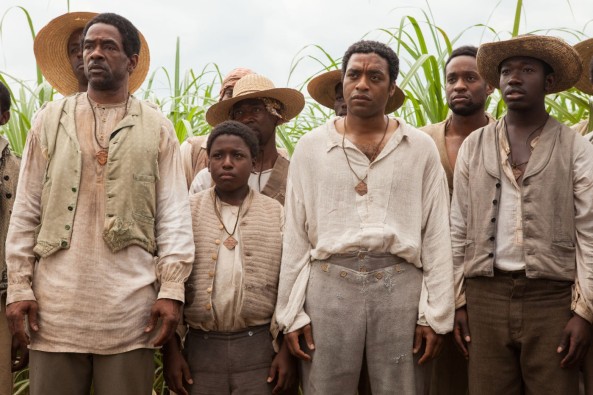“12 Years a Slave” will win Best Picture, along with three other Oscars.
The Oscars are here, although maybe not soon enough. A report recently said that two thirds of Americans have not seen any of the Best Picture winners yet. That to me doesn’t add up for a movie like “Gravity” that made as much money as it did, but the point is that this awards season, while interesting, has just gone on too long. A New York Times article wondered if the average individual is generally apathetic to the whole institution of the Oscars.
I hope that isn’t true, but it’s starting to feel that way when the debate over “12 Years a Slave” versus “American Hustle” has long since past, when we’ve heard the story about Jonah Hill getting paid as little as SAG would allow to work for Martin Scorsese over and over again, and when even “Let it Go” parodies are getting old.
Anyway, here are my final predictions. You may find there’s more consensus and predictability than you’d think.

Best Picture
Months ago I wrote an article bluntly titled “Gravity Will NOT Win Best Picture… Probably.” It was smart of me to add on that last word, because the good news is that “Gravity,” my favorite film of the year, is still here. It is still as much of a favorite to win now as it was back when it premiered at Toronto, despite all the things I said about it technically having come true.
But in the case of “Gravity,” the nitpickers have beaten the dollars, and a more “worthy” title, one that isn’t seen as just “a ride” or a movie with a “bad script” will have to take its place. That film will be “12 Years a Slave,” as many predicted long ago that it was invincible. It has now survived with wins at the BAFTAs and Golden Globes as the one to beat, and yet its tie in the Producers Guild Awards with “Gravity” confirms just how close this race is.
“American Hustle” may not be the last minute favorite after all, and it’s a shame for David O. Russell, who would now be 0-3 in a row on his current hot streak. The third time is not the charm, it seems, but I’m betting he’ll strike again, whereas Alfonso Cuaron and Steve McQueen may never make another Oscar friendly movie. The reason I feel it can’t win, and why some are predicting it might not win anything, is, what exactly is the narrative behind this movie winning? It’s a throwback, but not quite. It’s a crowd pleaser, but not entirely. It’s madcap fun, brilliant and original, but some would argue even that’s not all true.
“Gravity” and “12 Years a Slave” each have their supporters who would say otherwise about all of the above, and a win for them will mean something special.
 Marvel movies have been disposable. They’ve been designed to be the same. And even the best ones have only shown glimmers of the personality behind the camera. All that changes with “Black Panther.” In fact, so much has changed with this film. It signals not just a new step forward for Marvel, but a shift in the modern blockbuster’s ability to be political and current, and it’s an absolute leap forward in what we should demand from black cinema.
Marvel movies have been disposable. They’ve been designed to be the same. And even the best ones have only shown glimmers of the personality behind the camera. All that changes with “Black Panther.” In fact, so much has changed with this film. It signals not just a new step forward for Marvel, but a shift in the modern blockbuster’s ability to be political and current, and it’s an absolute leap forward in what we should demand from black cinema.
